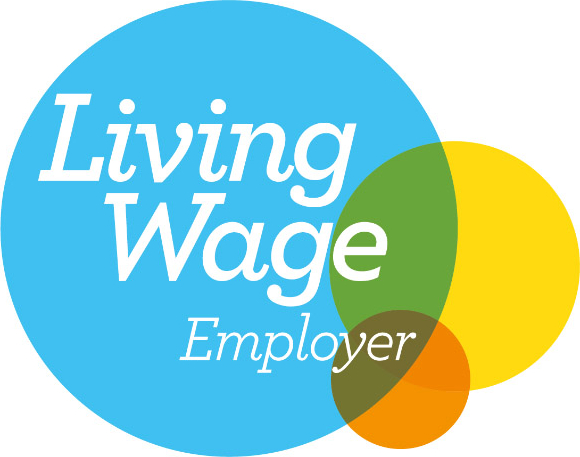DR MAX: this Insatiable Demand For Higher Doctors' Pay Looks Tawdry
페이지 정보
작성자 Salvador 댓글 0건 조회 7회 작성일 25-07-04 22:41본문
Junior medical professionals are threatening to strike again. So what, you might state? When are they not threatening a walk-out? In the previous 2 years, they have actually taken industrial action 11 times.

This makes me truly mad. My medical union, the British Medical Association (BMA), is wasting public regard for physicians, mauling facts and pursuing Left-wing crusades without any regard for the cost to the health service.
Their pressing needs for greater pay make my profession, my lifelong vocation, look tawdry, negative and money-grubbing. There are moments when I practically feel I might rip up my membership card in aggravation.
But it isn't simply my union that is acting so disgracefully. The real perpetrator is the Labour federal government, whose ineptitude in union settlements since pertaining to power has activated a greedy free-for-all.
Unless these outrageous demands can be brought under control, I fear the NHS might be bankrupted.
The flashpoint this month is the BMA's need for a pay increase much better than the 4 per cent that was executed on April 1 - an increase the union has dismissed as 'derisory'.
That 4 percent is already above the rate of inflation, which is presently running at 3.5 percent. In truth, the offer used to junior physicians (or 'resident doctors', as we're now expected to call them) offers significantly more, as they will receive an additional ₤ 750 on top of the uplift, representing an average increase in salary of 5.4 per cent.
And it comes on top of an enormous 22 per cent typical increase dished out by Health Secretary Wes Streeting in 2015 in a desperate bid to stop the continuous strikes, after they demanded a 30 per cent pay rise.
Their pressing needs for higher pay make my profession, my long-lasting vocation, look tawdry, negative and money-grubbing, states Dr Max Pemberton
Junior physician members of the British Medical Association (BMA) on the picket line outside the Royal Victoria Infirmary, Newcastle in 2023
That craven capitulation by Labour didn't work, obviously - simply as surrender has actually shown not successful in mollifying the transport unions, the teachers and every other militant collective. The BMA justifies its continued push for higher pay by declaring doctors are worse off by about a quarter in real terms given that 2009.
The chairman of the BMA council, Professor Philip Banfield, sneers at the 4 percent boost, saying it 'takes us in reverse, pushing pay remediation even further into the distance,' and includes ominously: 'Nobody desires a return to scenes of physicians on picket lines, however unfortunately this looks far more most likely.'
What else did anyone expect? Unions are to demand as much money for their members as they can get. They don't exist to be reasonable or to embrace compromise. And when Labour attempted to buy them off, the unions picked up weak point. Prof Banfield understands there are more concessions to be won now, more pips to be squeezed.
But the NHS is not some private, profit-making corporation, and this is not a battle between an exploited workforce and fat feline shareholders. Our beleaguered health service is moneyed by all of us - and it is on its knees.
This is something most doctors can acknowledge. Yet, over the previous decade or more, the union has actually been more worried with pursuing Left-wing agendas than acting in the very best interest of its members.
For circumstances, the BMA's management has refused to back the Cass Review, commissioned by the NHS as a report into gender identity services for children and youths.
The findings by Dr Hilary Cass, released last year, encouraged versus rushing under-18s into gender transition treatment, such as adolescence blockers, that they might later be sorry for.

It needs to not be the BMA's role to launch into a dispute on the interpretation of medical proof. That's what the Royal Colleges are for.
Sir Keir Starmer and Health Secretary Wes Streeting. This year's pay rise comes after resident medical professionals were awarded rises worth 22 percent by Mr Streeting in 2015
The union has actually violated its bounds, and I'm seriously unhappy about paying my subscription to an organisation that makes political declarations in my name.
These consist of require a ceasefire in Gaza, for instance, and criticism of China for human rights abuses - as if Hamas is going to return Israeli captives or Beijing is going to stop maltreating the Uighur minority, even if a medical professional's union in the UK calls for it.
This is inexpensive virtue-signalling, provided for no other reason than to make the BMA officers feel good about themselves.

I would admire them much more if they put their energy into fact-checking their own claims. The BMA is prone to bandying about numbers that do not stand up to scrutiny.
A few of their figures relating to wages and inflation have been exposed, utilizing information from the Institute for Fiscal Studies. Since BMA members include physicians with expertise in medical statistics, it's an embarrassment to everybody.
Most of all, I dislike them for losing the public assistance for medical professionals that we made at fantastic individual cost during the pandemic.
It is sickening that the genuine regard in which the medical profession was held simply five years ago has been replaced to a big degree by cynicism and even by displeasure.
Small marvel, then, that lots of junior medical professionals grumble that their friends with jobs in tech or banking are much better off than they are.
Junior medical professionals showing outside Downing Street in 2015 during strike action

Medicine should be beyond comparison, not simply one of a raft of professions measured just by the monetary benefits they bring.
This crisis has been brewing a long time, given that before the 2010 union federal government.
Tony Blair's introduction of university costs in 1998 has actually led directly to the circumstance today, where almost all my junior colleagues owe money by approximately ₤ 100,000 - or even more.
As an outcome, an increasing variety of more youthful colleagues appear to see a profession in medication as primarily transactional.
They argue that not just have they worked for their degree, but they have actually also purchased and paid for it. Which if they can earn more cash by quitting the NHS for the personal sector, and even by emigrating to practice abroad, for instance in Australia, well, why should not they?

It's a drastically various outlook to that of my generation. As somebody who was fortunate adequate to have his six years of medical training funded by the state, I see my role as a psychiatrist as far more than just a task. It's my calling.
DR MAX PEMBERTON: Functioning drug addicts conceal in plain sight, here's how to identify the signs
I am deeply pleased with what I do. Nothing else might change it or offer me the very same degree of complete satisfaction.
I personally believe that a person method to fix the crisis of dissatisfied and demanding young doctors is to deal with student physicians and nurses as a diplomatic immunity.

Instead of being obliged to get debilitating loans, medical trainees need to sign up to have their years of training moneyed by the state.
In return, they would undertake to work specifically within the NHS for, say, 15 years. Their debt would not be a monetary one but something much deeper - an obligation to society.
Of course, they might break this obligation if they wanted - but then they would be responsible to repay part or all the cost of their training.
This would not only guarantee more junior medical professionals remained in Britain, instead of emigrating, however may also have a deep psychological result.

댓글목록
등록된 댓글이 없습니다.




